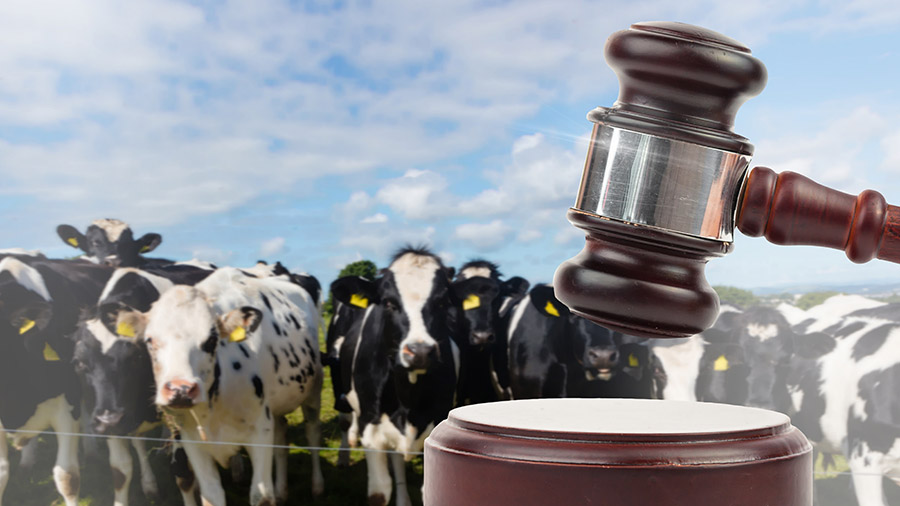Rule reminder: Best practice when trading livestock remotely
 © Adobe Stock/vectorfusionart
© Adobe Stock/vectorfusionart Farmers who purchase livestock in private trades should find out all they can about the animals before agreeing to a sale to maximise their chance of a refund if they are unhappy with their purchase.
Livestock auction firms still hope to proceed with many sales of breeding livestock this autumn despite coronavirus, but farmers are increasingly turning to online or private sales as an alternative which avoids the need to be in a crowd.
Farmers Weekly spoke to solicitor Manon Williams, a partner at law firm Agri Advisor, to find out what, if any, affect this has on the purchaser’s legal rights when livestock does not meet their satisfaction.
See also: How a farmer is improving growth and conformation of sheep
Online sales organised by auctioneers or breed societies will often have the same or similar livestock-specific conditions of sale to those sold at a physical auction, says Mrs Williams.
These are the first line of defence for buyers and sellers, and set out how the sale will be conducted and definitions of livestock, including what will make them unfit for sale.
Test of satisfactory quality
Where an unhappy buyer falls outside the scope of those conditions, such as if they miss a deadline to appeal, or in a private business-to-business transaction not covered by this protection, the next line of defence for both parties is the Sale of Goods Act 1979.
This stipulates that for a seller to provide a refund in a dispute, the buyer has to show that the goods were not fit for purpose or of satisfactory quality.
For a buyer to maximise their ability to prove that goods are not of satisfactory quality, they should ask questions relating to every factor which is important to them.
In the case of a stock bull for example, it would be good practice to make the seller clarify the fertility status and confirm the animal is not lame.
This will remove the seller’s protection of caveat emptor – or “buyer beware”, a legal principle that means the seller has no obligation to disclose information about the product that the buyer did not ask about before the sale.
“In online sales where you cannot inspect the animals then asking these questions is really important,” she says.
Disputes between farmers are often resolved informally as the cost of formal legal proceedings almost always outweigh the value of the goods being disputed.
However, in the event that a farmer thinks they can make a claim under the Sale of Goods Act, she advises they seek legal advice early, as it is a complex area of law.
Exchanging payment
Another potentially tricky area between a remote buyer and seller is the point at which goods and money are exchanged, as it often requires a measure of trust on both sides.
Where the parties do not know each other, Mrs WIlliams advises doing online research to see if their identify can be verified and to see if there are any reports linked to them of scamming.
Payment by online bank transfer can be a big help as it allows the seller to receive the money instantly once they have delivered the goods and does not require the nervous period waiting for a cheque to clear, Mrs Williams noted.
Lack of trust can also be overcome by using a third party to hold the money after a sale has been agreed.
Online livestock auction platform, SellMyLivestock has an escrow account service called FarmPay which allows the seller to see that the buyer has sufficient funds before arranging for the livestock to be delivered.
The buyer can then release the funds once they have inspected the livestock and found them to be satisfactory.
Andrew Loftus, commercial director for SellMyLivestock said around £5m of transactions had been routed through the optional service since it was launched in March 2018.
